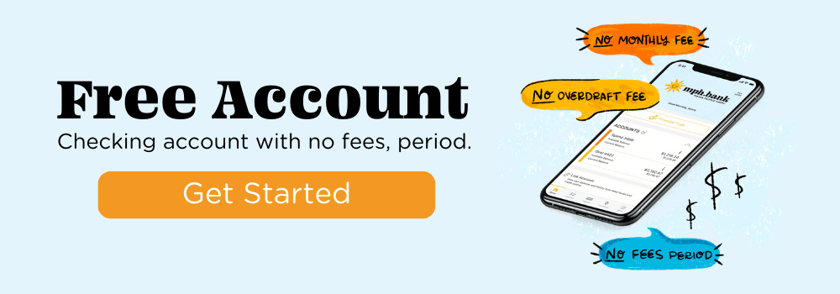Are you a pet lover with a furry friend at your side, or perhaps considering welcoming one into your life? While the joy and companionship that pets bring is priceless, it's no secret that there's a financial aspect to pet ownership. In this friendly yet professional guide, we'll explore the economic impact of having a pet, and we'll provide you with valuable tips on how to ensure budget-friendly pet care without compromising the well-being of your beloved animal companion.
Related Article: College Enrollment Financing FAQs
The Initial Costs of Pet Ownership
Bringing a pet into your home comes with several upfront expenses
Adoption or Purchase
Adoption Fees
If you choose to adopt from a shelter, you can expect to pay an adoption fee, which varies by location and the specific animal shelter. On average, this cost can range from $50 to $200, depending on the age and type of pet.
Purchase Price
For those considering purchasing a purebred pet from a breeder, the cost can be substantially higher. It's not uncommon for purebred puppies or kittens to have price tags in the range of $800 to $2,000 or more.
Vaccinations and Microchipping
Initial Vaccinations
After adoption or purchase, your new pet will require essential vaccinations. The cost can vary by the type of pet and your location but is typically in the range of $50 to $100 or more for the first round of shots.
Microchipping
To ensure your pet's safety and identification, consider microchipping. This one-time expense typically ranges from $45 to $75.
Spaying or Neutering
Spaying or Neutering
The procedure to spay or neuter your pet is a vital step in responsible pet ownership. The cost varies by the size and type of animal but generally falls between $50 and $200.
Ongoing Expenses of Pet Ownership
Once your pet is settled in, there are a variety of ongoing costs associated with their care:
Food and Treats
Quality Food
The cost of pet food can vary widely, but opting for a higher-quality, nutritious diet is often recommended. For cats and small dogs, monthly expenses can be $20 to $50, while larger dogs may require $50 to $100 per month.
Treats
Pet treats and chews are additional costs, with expenses varying depending on the size of your pet and how often you indulge them. Be prepared to spend an additional $10 to $30 monthly.
Routine Veterinary Care
Annual Check-ups
Regular vet visits are crucial to your pet's health. Annual check-ups can cost between $50 and $100, excluding any vaccinations or treatments required.
Preventative Medications
Flea, tick, and heartworm preventatives are necessary for many pets and can range from $10 to $20 per month, depending on the type and size of your pet.
Pet Insurance
Pet Insurance
To safeguard against unexpected veterinary expenses, pet insurance can be an option. Costs vary based on coverage and the specific insurance provider but typically range from $30 to $60 per month.
Grooming and Hygiene
Grooming
Grooming expenses depend on the breed and coat type of your pet. Dogs, in particular, may require regular grooming, with costs ranging from $30 to $90 per session.
Hygiene Products
These include pet shampoos, brushes, toothbrushes, and more, and can add another $10 to $20 monthly.
Supplies and Toys
Supplies
Initial purchases like a pet bed, food and water bowls, a litter box, or a leash can add up to $100 or more. Additionally, replenishing items like cat litter and waste bags or cat and dog toys can cost $20 to $50 per month.
Budget-Friendly Pet Care Tips
While the costs of pet ownership can add up, there are plenty of ways to provide exceptional care for your furry friend without breaking the bank:
Adopt, Don't Shop
Choosing to adopt from a shelter is not only a cost-effective way to find a pet, but it's also a compassionate choice. You'll be providing a loving home to a pet in need.
Prioritize Preventative Care
Routine veterinary visits and preventative medications are essential for your pet's health. Staying up-to-date on vaccinations and maintaining a healthy diet can help prevent costly health issues down the road.
Homemade Treats and Toys
Get creative with DIY pet treats and toys. Many homemade pet treats can be made from basic ingredients in your kitchen, saving you money while ensuring the quality of the ingredients. Homemade toys, such as braided ropes for dogs or feather wands for cats, can provide endless entertainment at a fraction of the cost of store-bought toys.
Compare Prices
Don't hesitate to compare prices for pet supplies, food, and medications. Prices can vary significantly between pet stores, online retailers, and local pharmacies. Take advantage of sales, promotions, and loyalty programs to reduce expenses.
Pet Grooming at Home
If your pet's grooming needs are manageable, consider grooming them at home. Invest in grooming tools and take the time to learn how to groom your pet safely and effectively. This can save you a significant amount in grooming fees over time.
Buy in Bulk
When it comes to pet food and supplies, buying in bulk can often result in cost savings. Look for larger bags of pet food, litter, or treats, which typically offer a lower per-unit cost.
Regular Exercise
Staying proactive about your pet's health can save you money in the long run. Regular exercise and maintaining a healthy weight can help prevent obesity-related health issues and costly treatments.
Invest in Training
Proper training can prevent behavior problems that may lead to expensive damage to your home or belongings. Investing in training classes or books can pay off by keeping your pet well-behaved and your expenses down.
Emergency Savings
Create an emergency savings fund specifically for your pet's unexpected medical expenses. This can help you avoid financial stress when dealing with sudden health issues.
Estimating the Lifetime Financial Commitment of Pet Ownership
Note: These costs can vary significantly depending on factors such as the type of pet, its size, your location, and specific choices you make as a pet owner. The figures provided are estimates and should serve as a general guideline.
Adoption or Purchase Costs
- Adoption Fees: Typically $50 to $200
- Purchase Price (for purebred pets): Typically $800 to $2,000 or more
Initial Veterinary Expenses
- Initial Vaccinations: $50 to $100
- Microchipping: $45 to $75
- Spaying or Neutering: $50 to $200
Ongoing Veterinary Expenses
- Annual Check-ups: $50 to $100
- Preventative Medications: $10 to $20 per month
- Pet Insurance: $30 to $60 per month
Food and Treats
- Quality Food: $20 to $100 per month (varies with pet size)
- Treats: $10 to $30 per month
Grooming and Hygiene
- Grooming (if required): $30 to $90 per session
- Hygiene Products: $10 to $20 per month
Supplies and Toys
- Initial Supplies: $100 or more
- Monthly Supplies (e.g., cat litter, waste bags, toys): $20 to $50
Training and Behavior
- Training Classes: $100 to $200 for basic training
- Training Books and Supplies: Varies based on choice
Emergency Savings
- Emergency Veterinary Fund: Suggested to have $500 to $1,000
Miscellaneous Costs
- Pet License (if required in your area): Varies by location
- Pet Sitting/Boarding: Varies by pet type and location
- Travel Expenses with Your Pet: Varies based on frequency
Total Lifetime Cost of Pet Ownership
The total lifetime cost of pet ownership can vary significantly depending on the type and size of your pet, your location, and personal preferences. On average, the lifetime cost of owning a pet can range from $10,000 to $15,000 or more for a dog or cat over their lifetime, which can be 10-15 years or more. Smaller pets, like birds or small rodents, may have lower lifetime costs, while larger and more exotic pets can have significantly higher costs.
Note: These figures are estimates, and your actual costs may be higher or lower. By practicing responsible pet ownership, budgeting, and making cost-effective choices, you can ensure that you provide your pet with the care and love they deserve while managing your finances effectively.
A Priceless Bond
The financial aspects of pet ownership are undeniable, but they are just one part of the equation. The emotional rewards, companionship, and the love your pet brings into your life are immeasurable. While budgeting and financial planning are essential, remember that the joy, comfort, and unconditional love your pet provides are the real treasures of pet ownership.
By adopting cost-effective strategies and prioritizing your pet's well-being, you can provide them with a happy, healthy life while ensuring your financial peace of mind. The financial investment in pet ownership is a small price to pay for the invaluable bond you share with your furry companion.
What do fish use as currency to purchase anything?
Sand Dollars! Sign up to receive important information on banking, financial tips, and jokes like this directly to your inbox










